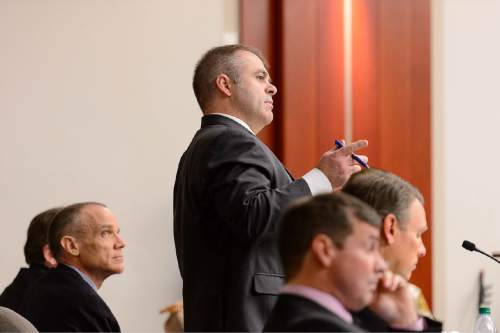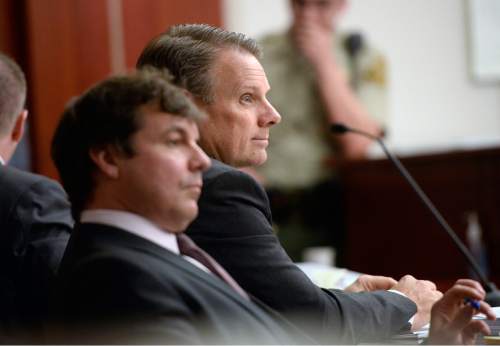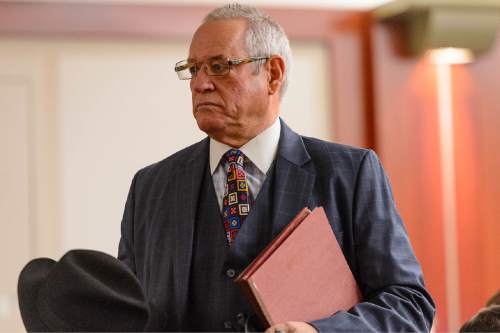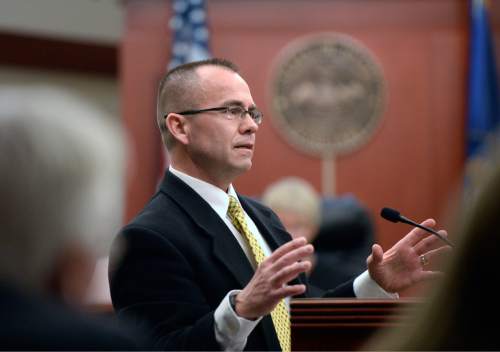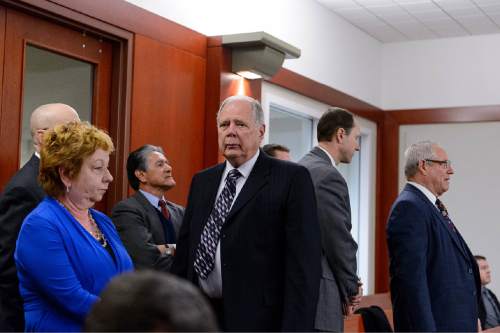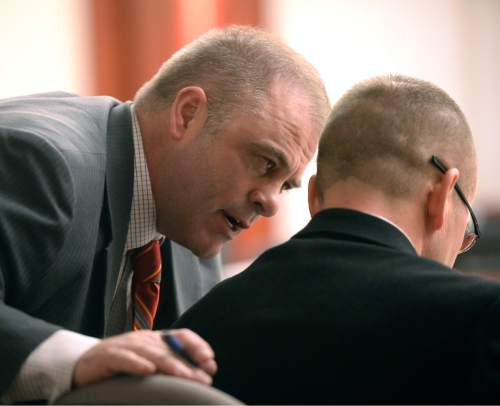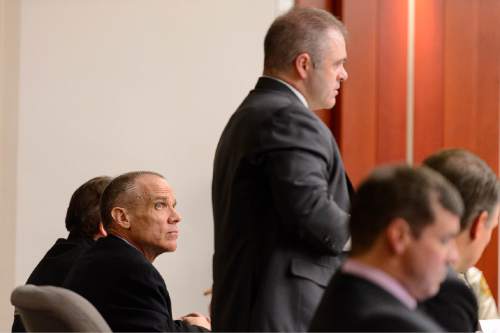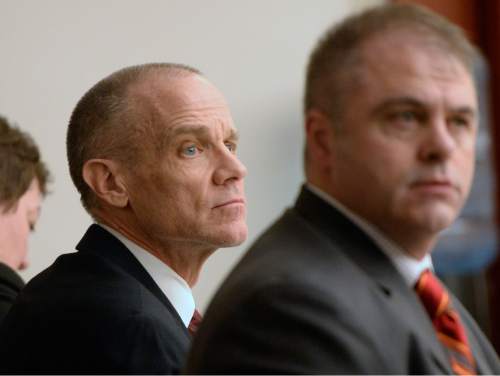This is an archived article that was published on sltrib.com in 2015, and information in the article may be outdated. It is provided only for personal research purposes and may not be reprinted.
Two former Utah attorneys general and an Olympic gold medal ski racer subpoenaed by a defense attorney will not have appear — for now — at a fraud and money-laundering trial that has ties to a wider corruption scandal in the state's top law enforcement office, a judge has ruled.
But embattled former Utah top cops Mark Shurtleff and John Swallow and alpine skier Ted Ligety could still find themselves taking the stand if a defense attorney for Marc Sessions Jenson seeks a court order forcing them to do so.
The decision, from 3rd District Judge Elizabeth Hruby-Mills, came Tuesday before the fourth day of testimony in Jenson's trial.
Jenson, 54, along with his co-defendant and brother, Stephen Roger Jenson, 39, have both pleaded not guilty to multiple counts of second-degree felony money laundering in connection with the failed Mt. Holly resort near Beaver.
Jenson's attorney, Marcus Mumford, is expected to file motions to compel testimony from Shurtleff, Swallow and others who filed subpoena objections once he begins to mount a defense.
Prosecutors, who are expected to rest their case Wednesday, say the Jensons — who sought to transform the defunct Elk Meadows ski area — failed to disclose required information to investors, including that they were near bankruptcy, had been sued over the project and that Marc Jenson had past convictions for securities fraud and tax evasion.
Defense attorneys maintain the $3.5 billion Mt. Holly project was a legitimate enterprise that fell apart when a New York-based hedge fund that had backed the project cut its funding.
On Tuesday, a former state investigator told the jury that bank records show the development was already in financial trouble when the Jensons began selling the $1.5 million charter resort memberships. One account was $135,000 in the red in December 2007, when the first of three Colorado investors wired funds totaling more than $1.5 million to Mt. Holly, said Steve Sperry, who investigated the Jensons while working for the Utah attorney general's office.
Within days of the deposits, however, the money was gone, moved out of resort operating accounts to bank accounts associated with brothers, said Sperry, who has yet to be questioned by the defense.
"[The investors'] money went into the Mt. Holly account and from there, the funds were moved to other accounts," he said.
The case was filed in 2011 by the attorney general's office, when Shurtleff was at the helm and Swallow was chief deputy. The office had previously prosecuted Marc Jenson for securities fraud.
Mumford contends the prosecution is payback for Jenson's refusal to comply with a financial "shakedown" orchestrated against him by Shurtleff and Swallow.
In 2013, Jenson alleged Shurtleff and Swallow had squeezed him for cash and other favors, adding fuel to investigations that left the two men charged with multiple felonies for an alleged pay-to-play scheme, which investigators say included taking bribes to protect big campaign donors. Both Shurtleff and Swallow maintain their innocence.
Separately Tuesday, Mumford told the court that Marc Jenson's wife had returned to her Salt Lake City home that day to find she had been the apparent victim of a break-in. Taken from the home were two computers, which contained documents and records related to Jenson's relationship with Shurtleff, attorney Helen Redd said. Many of the other valuables in the home were not taken.
"If you were to look at the scene, it looks like a targeted ransack," said Redd, who went to the home, in the 9th & 9th neighborhood.
The Salt Lake City Police Department's public log of calls does reflect that a burglary investigation was underway at Jenson's Belmont Avenue address Tuesday, but the department could not provide further details.


